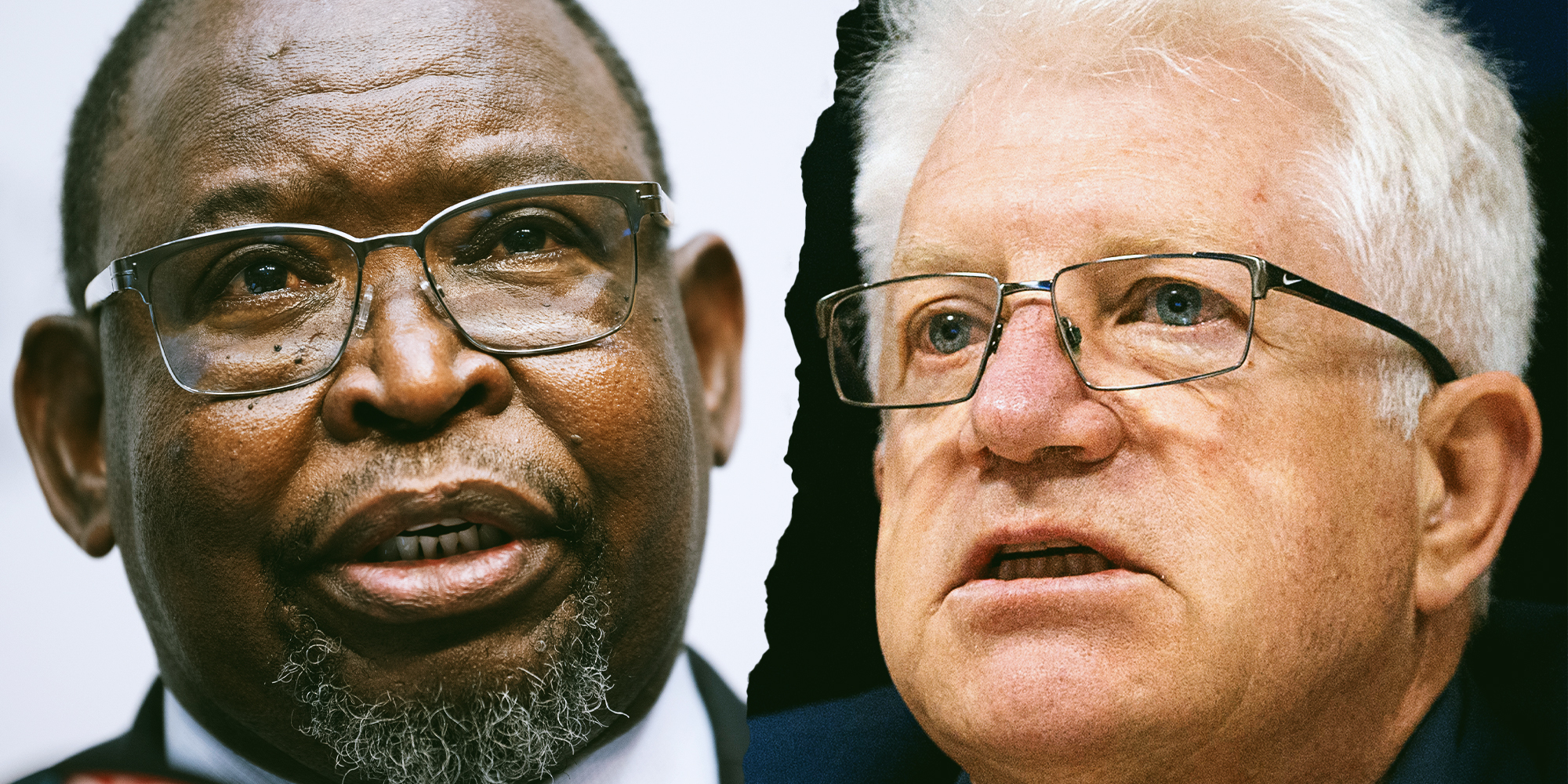The Western Cape government has declared an intergovernmental dispute with the national government to secure R1.1-billion from the National Treasury for the public sector wage increase.
Premier Alan Winde and the MEC for finance and economic development, Mireille Wenger, in a joint statement on Tuesday, said the dispute was declared with the national government represented by Finance Minister Enoch Godongwana and Public Service and Administration Minister Noxolo Kiviet in terms of the Intergovernmental Relations Framework Act.
Read more in Daily Maverick: National government inflicting death by a thousand budget cuts on SA and the Western Cape
The Act provides a framework for the creation of intergovernmental forums and mechanisms to facilitate the settlement of intergovernmental disputes.
“The dispute relates to the centrally negotiated and agreed to public sector wage bill, which was implemented after the Western Cape provincial parliament approved the annual budget, leading to unprecedented in-year budget cuts,” they said.
“Through this action, we are trying to avoid dramatic reductions in service delivery spending in order to cater for the wage liability. We have tried to engage with national government to avoid this situation, to no avail. And for this reason, we have taken the difficult but necessary step of declaring an intergovernmental dispute.”
In March, the government inked a deal to give 1.2 million public servants a 7.5% pay increase in the current fiscal year (2023/24) that it had not fully budgeted for.
Public servant remuneration is already the single largest component of government expenditure, gobbling up 30% of 2023’s R2.26-trillion budget, Daily Maverick’s Ray Mahlaka reported. The provinces — who had no role in the wage deal negotiations — have been forced to accommodate pay increases from their existing budgets.
After the provinces bemoaned that the national government had negotiated unaffordable pay increases centrally and then denied provincial departments the funds to implement them, National Treasury committed to partial funding of R17.6-billion for provinces to be able to implement pay increases.
But DA Western Cape budget spokesperson Deidré Baartman said the increase in public sector wages had had an impact of close to R2.9-billion on the Western Cape’s budget for this financial year. The national government had allocated an additional R1.7-billion to the province, but this would only partially cover the wage increase for education and healthcare.
“All other departments’ wage increases will have to be self-funded. The approximately R1.1-billion shortfall would have to be found within the existing budget, meaning cuts to vital programmes that impact our residents directly,” Baartman said.
She added that the national government was also slashing R640-million from conditional grants to the province, and there would be no disaster funding from the national government to repair damage from this year’s flooding in the province. The provincial government had requested a State of Disaster declaration from the National Disaster Management Centre to unlock about R700-million in funding to repair flood damage caused by winter storms in May and June.
Winde and Wenger said the “staggering” R1.1-billion shortfall needed to pay public servants would “have a direct impact on critical service delivery” like schools, clinics, hospitals and road networks.
Read more in Daily Maverick: Public sector wage deal doublethink hides a double whammy for provinces
Our message to the national government is clear:
Give us our R1.1 billion or we will see you in court.
— Premier Alan Winde ?? (@alanwinde) November 28, 2023
The CEOs of the Western Cape’s three academic hospitals earlier this month sounded the alarm that, because of severe funding cuts, they could run out of cash by 15 January 2024. The wage shortfall for all the health departments across South Africa’s nine provinces is R8.7-billion, Elsabé Brits reported in Daily Maverick.
“From the start of this process, it was evident we could not afford this wage deal and all warning signs of the irrationality of the agreement were seemingly ignored. This is an issue that affects all provinces and every government department. What is desperately needed is prudent fiscal consolidation, management and discipline. This appears to be lacking in national government,” said Winde.
Read more in Daily Maverick: SA’s delivery of crucial services under threat after Treasury desperately calls for public ‘fiscal consolidation’
Eastern Cape pinching pennies
The MEC for finance in the Eastern Cape, Mlungisi Mvoko, last week said during his adjustment budget speech that the province was running at a deficit of R3-billion.
Provincial receipts of just over R1-billion, mostly the rollover of conditional grants, had reduced the deficit.
The total transfers received from the national government amounted to R89.4-billion and the total expenditure to R92.3-billion.
He said the province had received an equitable share of R72.3-billion in February and this was boosted by an adjustment of R2.3-billion specifically for the implementation of the health and education public wage bill. This wage bill was, however, R3.6-billion.
“What we got doesn’t even come close [to covering the wage bill],” he said. DM
Additional reporting by Estelle Ellis





